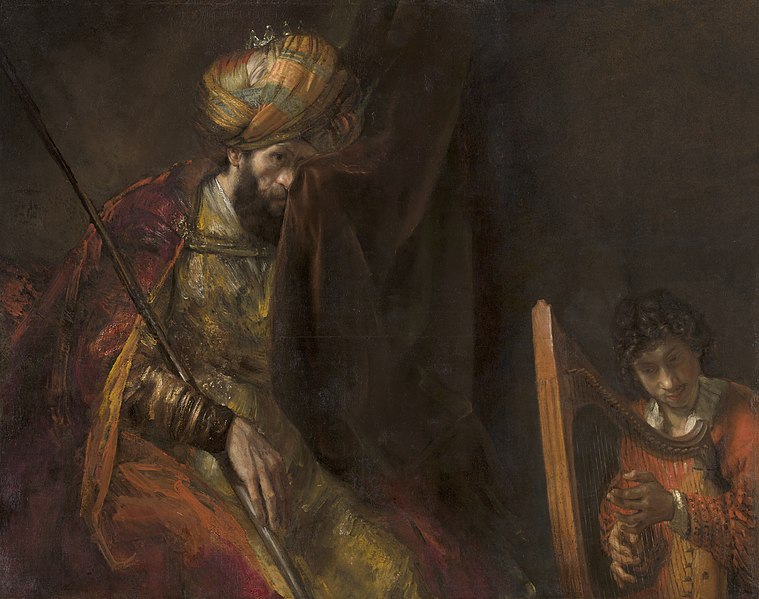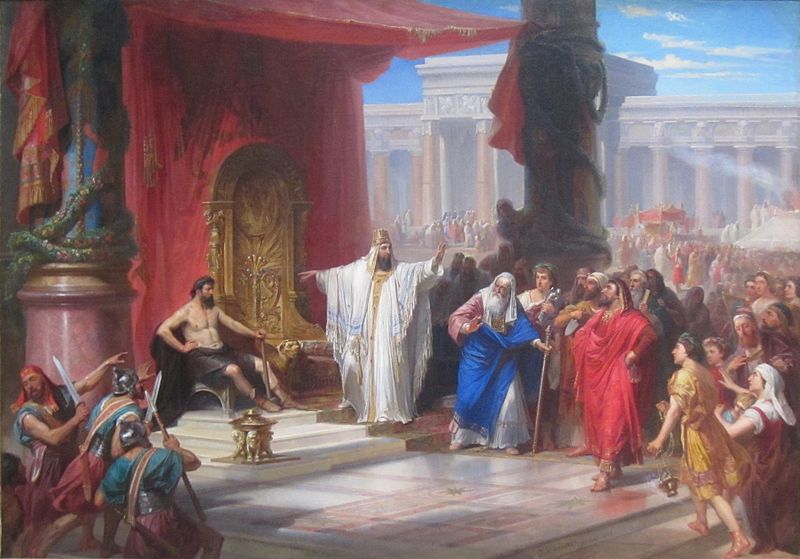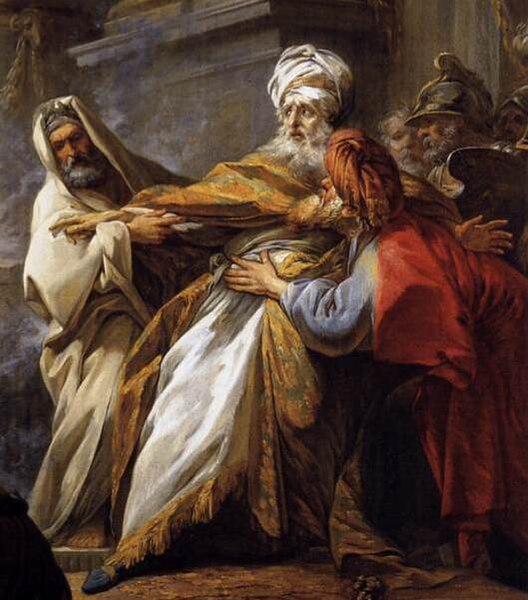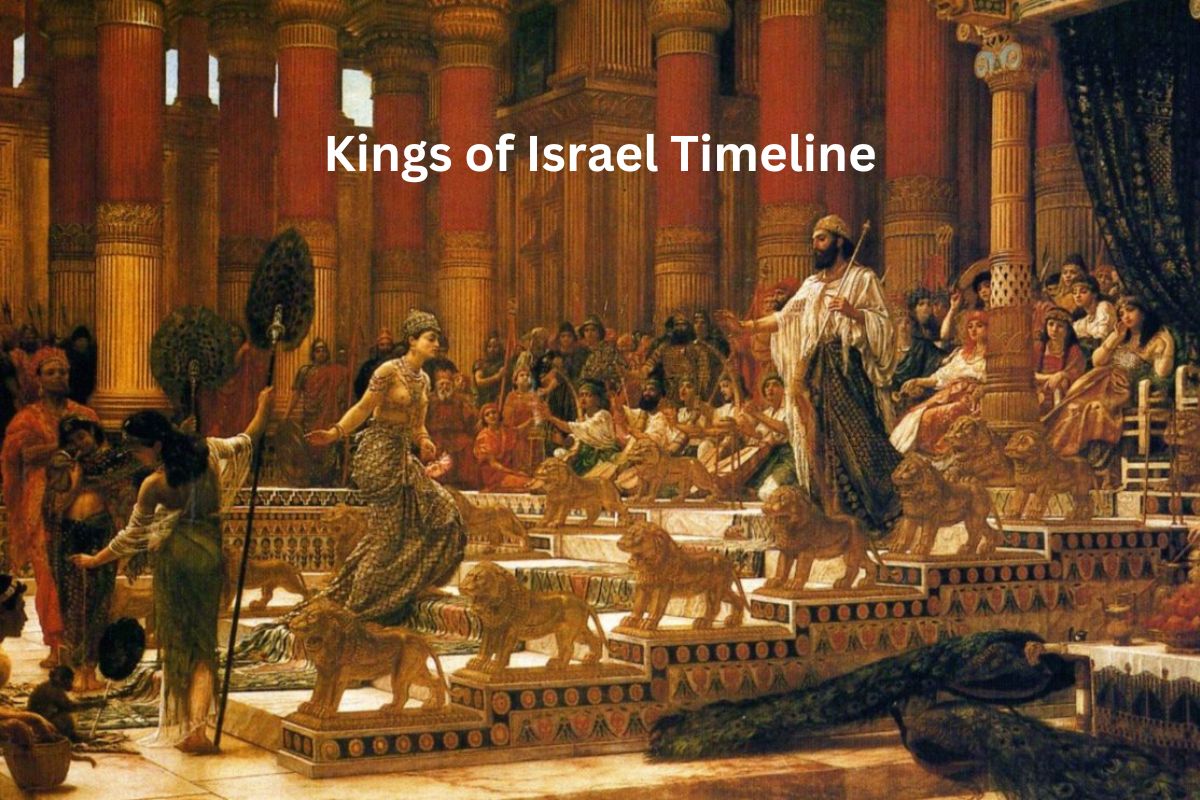The history of the ancient kings of Israel and Judah is a complex and fascinating tale of political intrigue, religious evolution, and the rise and fall of dynasties.
This historical narrative spans centuries and encompasses a multitude of kings, each with their own unique contributions and challenges.
From the united kingdom under King Saul, King David, and King Solomon to the divided kingdoms of Israel and Judah, the following overview provides a glimpse into the reigns of key monarchs and the significant events that shaped the course of these two biblical kingdoms.
| Kings of Israel | Reign (Approx. Dates) |
|---|---|
| Saul | c. 1020-1000 BC |
| David | c. 1000-961 BC |
| Solomon | c. 961-922 BC |
| Jeroboam I (Northern Kingdom) | c. 922-901 BC |
| Nadab (Northern Kingdom) | c. 901-900 BC |
| Baasha (Northern Kingdom) | c. 900-877 BC |
| Elah (Northern Kingdom) | c. 877-876 BC |
| Zimri (Northern Kingdom) | c. 876 BC |
| Omri (Northern Kingdom) | c. 876-869 BC |
| Ahab (Northern Kingdom) | c. 869-850 BC |
| Ahaziah (Northern Kingdom) | c. 850-849 BC |
| Jehoram (Northern Kingdom) | c. 849-842 BC |
| Jehu (Northern Kingdom) | c. 842-815 BC |
| Jehoahaz (Northern Kingdom) | c. 815-801 BC |
| Joash (Northern Kingdom) | c. 801-786 BC |
| Jeroboam II (Northern Kingdom) | c. 786-746 BC |
| Zechariah (Northern Kingdom) | c. 746 BC |
| Shallum (Northern Kingdom) | c. 746 BC |
| Menahem (Northern Kingdom) | c. 746-737 BC |
| Pekahiah (Northern Kingdom) | c. 737-735 BC |
| Pekah (Northern Kingdom) | c. 735-732 BC |
| Hoshea (Northern Kingdom) | c. 732-722 BC |
| Rehoboam (Southern Kingdom) | c. 922-915 BC |
| Abijam (Southern Kingdom) | c. 915-913 BC |
| Asa (Southern Kingdom) | c. 913-873 BC |
| Jehoshaphat (Southern Kingdom) | c. 873-849 BC |
Timeline of the Kings of Israel
Saul (c. 1020-1000 BC)
Saul was anointed as the first king of Israel by the prophet Samuel. He hailed from the tribe of Benjamin and was chosen for his impressive physical stature and leadership qualities.
Saul’s reign was marked by several significant events, including his victories over the Ammonites and Philistines. However, he also faced challenges and conflicts, particularly with the young David.
Also Read: History of Israel Timeline
His kingship ended tragically as he lost favor with God, and in a battle against the Philistines at Mount Gilboa, Saul and his sons, including Jonathan, were killed.

David (c. 1000-961 BC)
David, the son of Jesse, succeeded Saul as the second king of Israel. He is perhaps one of the most renowned figures in the Bible.
David is celebrated for his military prowess, his defeat of Goliath, and his leadership in uniting the tribes of Israel into a strong and centralized kingdom.
Also Read: Israel Facts
He captured Jerusalem and made it his capital, known as the City of David. Under his rule, Israel experienced a period of prosperity and territorial expansion.
David’s reign was not without challenges, including his affair with Bathsheba, which led to a series of personal and national difficulties. Nevertheless, he is remembered for his musical talents (as a psalmist) and for receiving God’s promise of an everlasting dynasty.
Solomon (c. 961-922 BC)
Solomon, the son of David and Bathsheba, ascended to the throne as the third king of Israel. His reign is characterized by wisdom, wealth, and grand construction projects.
He is famously known for his judgment when two women claimed to be the mother of the same baby, proposing to split the child in two to reveal the real mother.
Solomon’s most notable achievement was the construction of the First Temple in Jerusalem, a place of worship for the Israelites.
His reign marked a peak of Israel’s power and influence in the ancient Near East. He established diplomatic relations and trade alliances with neighboring kingdoms.
However, Solomon’s later years were marred by oppression and heavy taxation, which led to discontent among his subjects.

Jeroboam I (Northern Kingdom) (c. 922-901 BC)
Jeroboam I was the first king of the northern kingdom of Israel after it split from the southern kingdom of Judah following Solomon’s death.
Jeroboam had initially served as a high-ranking official in Solomon’s administration but was later prophesied to become king over ten of the twelve tribes of Israel by the prophet Ahijah.
He was a pragmatic leader who established alternative places of worship in Bethel and Dan to prevent his subjects from going to Jerusalem to worship, fearing their loyalty to the southern kingdom.
Despite his initial successes, Jeroboam’s reign was marked by religious syncretism and a failure to maintain the religious and moral standards set by God.
Nadab (Northern Kingdom) (c. 901-900 BC)
Nadab, the son of Jeroboam I, succeeded his father as king of the northern kingdom.
His reign was very short-lived, lasting only about two years.
Nadab’s rule was marked by political instability, and he faced opposition from Baasha, one of his own military commanders.
Baasha (Northern Kingdom) (c. 900-877 BC)
Baasha, a military commander, seized the throne of the northern kingdom by assassinating Nadab, the son of Jeroboam I. This marked a shift in leadership within the kingdom.
During Baasha’s reign, he faced opposition from the prophet Jehu, who prophesied the downfall of his dynasty due to his sinful actions.
Baasha’s dynasty continued for several generations, but his reign was characterized by ongoing conflict with the southern kingdom of Judah.

Elah (Northern Kingdom) (c. 877-876 BC)
Elah succeeded Baasha as king of the northern kingdom after his assassination.
His reign, however, was very brief, lasting just over a year. He was assassinated by Zimri, one of his own military commanders, who then took the throne.
Zimri (Northern Kingdom) (c. 876 BC)
Zimri’s reign was one of the shortest in the history of the northern kingdom, lasting only seven days.
He came to power by assassinating Elah but was not able to maintain his rule for long. Faced with opposition from Omri, another military commander, Zimri chose to set the royal palace on fire and perished in the flames.
Omri (Northern Kingdom) (c. 876-869 BC)
Omri emerged as the king of the northern kingdom after a power struggle following Zimri’s death.
He is best known for his establishment of a new capital city, Samaria, which became a significant center of power and culture in the region.
Omri’s reign was marked by political stability and expansion, but it also saw a shift toward closer relations with the Phoenician city-state of Tyre through his marriage to the Phoenician princess Jezebel.
His dynasty continued with his son Ahab, who became one of the most famous and controversial kings in the history of Israel.
Ahab (Northern Kingdom) (c. 869-850 BC)
Ahab, the son of Omri, succeeded his father as king and reigned for about 22 years.
He is perhaps best known for his marriage to Jezebel, a Phoenician princess, which led to the promotion of Baal worship and a clash with the prophet Elijah.
Ahab’s reign saw significant conflicts with neighboring kingdoms, particularly Aram-Damascus, and a notable event was the battle of Qarqar, where Ahab allied with other regional rulers against the Assyrians.
He also sought to expand the northern kingdom’s territory, including the attempt to acquire the vineyard of Naboth, a story famously associated with the prophet Elijah’s condemnation.
Ahaziah (Northern Kingdom) (c. 850-849 BC)
Ahaziah was the son of Ahab and succeeded his father as king of the northern kingdom.
His reign was short, lasting only about two years.
Ahaziah’s rule was characterized by his continuation of the religious policies established by his parents, Ahab and Jezebel, which involved the worship of the Canaanite god Baal.
His reign came to an abrupt end when he fell through the lattice of his upper chamber and was seriously injured. He sent messengers to inquire of the god Baal-Zebub about his recovery, which led to an encounter with the prophet Elijah, who pronounced judgment on Ahaziah’s unfaithfulness.
Jehoram (Northern Kingdom) (c. 849-842 BC)
Jehoram, also known as Joram, was the brother of Ahaziah and the son of Ahab. He became the king of the northern kingdom.
His reign was marked by conflicts with the Moabites, who revolted against Israel’s control during his rule.
Additionally, Jehoram continued the worship of Baal and maintained the religious practices introduced by his parents.
He faced challenges from the prophet Elisha, who condemned his idolatrous practices and predicted dire consequences for Israel.

Jehu (Northern Kingdom) (c. 842-815 BC)
Jehu was a military commander who led a revolt against the house of Ahab and became the king of the northern kingdom of Israel.
His rise to power was accompanied by a series of violent purges, during which he eliminated Ahab’s descendants and supporters, including Jezebel and the prophets of Baal.
Jehu’s reign was marked by his zeal for eradicating Baal worship in Israel, and he destroyed Baal’s temples and priests.
Despite his initial zeal for religious reform, Jehu’s later actions and rule were criticized by the prophets, and the kingdom continued to experience instability.
Jehoahaz (Northern Kingdom) (c. 815-801 BC)
Jehoahaz, the son of Jehu, succeeded his father as king of the northern kingdom.
His reign was marked by ongoing conflicts with the Arameans (Syrians), who oppressed Israel during this period.
Jehoahaz sought the favor of the Lord and cried out for help in the face of these foreign oppressions.
However, the oppression continued, and Israel’s territory continued to shrink.
Joash (Northern Kingdom) (c. 801-786 BC)
Joash, also known as Jehoash, was the son of Jehoahaz and became the king of the northern kingdom.
His reign was characterized by a restoration of the temple in Israel, which had fallen into disrepair during previous reigns.
Joash sought the help of the prophet Elisha and received a prophecy regarding victory over the Arameans.
Despite this initial promise, the later part of Joash’s reign saw a decline in his faithfulness to God and challenges from external enemies.
Jeroboam II (Northern Kingdom) (c. 786-746 BC)
Jeroboam II, the son of Joash (Jehoash), ascended to the throne of the northern kingdom after a period of unrest.
His reign marked a period of relative stability and prosperity for Israel. He successfully expanded the territory of the kingdom, including the recovery of lost territories in the north.
Despite his political success, Jeroboam II continued the sinful practices of his predecessors, including the worship of idols. The prophet Amos denounced the social and moral decay that occurred during this time.

Zechariah (Northern Kingdom) (c. 746 BC)
Zechariah, the son of Jeroboam II, succeeded his father as king.
His reign was extremely short-lived, lasting only about six months. During this time, he ruled in the midst of political instability and conflict.
Zechariah was assassinated by Shallum, one of his officials, who then took the throne.
Shallum (Northern Kingdom) (c. 746 BC)
Shallum, who assassinated Zechariah, ruled the northern kingdom for just one month before being overthrown by Menahem.
His brief reign highlights the chaotic and violent nature of politics in the northern kingdom during this period.
Menahem (Northern Kingdom) (c. 746-737 BC)
Menahem, a military commander, seized the throne of the northern kingdom after overthrowing Shallum.
His reign was marked by the ongoing threat of the Assyrian Empire, which exacted tribute from Israel during this time.
Menahem continued the unfaithful practices of his predecessors, contributing to the moral decline in Israel.
Pekahiah (Northern Kingdom) (c. 737-735 BC)
Pekahiah, the son of Menahem, succeeded his father as king of the northern kingdom.
His reign, like those before him, was characterized by idolatry and moral degradation.
After just two years in power, he was assassinated by Pekah, one of his military officers, who then took the throne.
Pekah (Northern Kingdom) (c. 735-732 BC)
Pekah, who assassinated Pekahiah, ruled the northern kingdom during a time of great turmoil.
He faced significant external threats, notably from the Assyrians under King Tiglath-Pileser III. Tiglath-Pileser invaded Israel, leading to the capture of numerous cities and territories.
Pekah formed an alliance with Rezin, the king of Aram-Damascus, to resist the Assyrian invasion. However, their efforts were largely unsuccessful, and Israel suffered significant losses.
Hoshea (Northern Kingdom) (c. 732-722 BC)
Hoshea succeeded Pekah as the king of the northern kingdom during a period of extreme vulnerability.
His reign was marked by further Assyrian aggression, with King Shalmaneser V laying siege to the capital city, Samaria.
After a three-year siege, Samaria fell in 722 BC, marking the end of the northern kingdom of Israel. The Assyrians deported a significant portion of the Israelite population, leading to the famous “Lost Ten Tribes of Israel.”
Rehoboam (Southern Kingdom) (c. 922-915 BC)
Rehoboam, the son of Solomon, became the first king of the southern kingdom of Judah after the division of the united kingdom.
His reign was characterized by tension and conflict with the northern kingdom of Israel, particularly during the early years of his rule.
Rehoboam faced challenges from Egypt and other neighboring nations but managed to maintain the integrity of the southern kingdom of Judah.
Abijam (Southern Kingdom) (c. 915-913 BC)
Abijam, also known as Abijah, succeeded his father Rehoboam as the king of Judah.
His reign was marked by a war with Jeroboam, the king of Israel, over the city of Bethel. Abijam delivered a fiery speech against the northern kingdom and claimed victory.
Despite his military successes, Abijam did not fully follow God’s ways, and his reign was considered less righteous than those of other kings of Judah.
Asa (Southern Kingdom) (c. 913-873 BC)
Asa, the son of Abijam, became the king of Judah following his father’s death.
He is known for his commitment to religious reforms and his efforts to remove idolatry from the kingdom. Asa even removed his own grandmother, Maacah, from her position as queen mother due to her involvement in idol worship.
Asa’s reign was marked by relative peace, and he entered into an alliance with the king of Israel against their common enemy, the northern kingdom of Israel.
Despite some lapses in faithfulness during his later years, Asa is remembered as a king who sought to follow the ways of the Lord.
Jehoshaphat (Southern Kingdom) (c. 873-849 BC)
Jehoshaphat was the son of Asa and became the king of the southern kingdom of Judah.
His reign was marked by a commitment to following the ways of the Lord, and he sought to strengthen the religious practices in Judah.
Jehoshaphat formed an alliance with Ahab, the king of Israel, in a joint military campaign against the Arameans. However, this alliance was criticized by the prophet Jehu.
Despite occasional challenges, Jehoshaphat’s reign was generally peaceful and prosperous.
Ahaziah (Southern Kingdom) (c. 849-843 BC)
Ahaziah, the son of Jehoram (Joram), succeeded his father as king of the southern kingdom of Judah.
His reign was relatively short, lasting only a few years.
Ahaziah continued the unfaithful practices of his predecessors and maintained close relations with the northern kingdom of Israel.
He was wounded in an attempt to visit Joram, the king of Israel, who was also injured in a conflict with the Arameans.
Athaliah (Southern Kingdom) (c. 843-837 BC)
Athaliah was the daughter of Ahab and Jezebel, making her the granddaughter of Omri, the king of Israel. After Ahaziah’s death, she seized the throne of the southern kingdom of Judah.
Her rule was marked by a pursuit of Baal worship and the elimination of potential rivals to the throne, including her own grandchildren.
Athaliah’s reign was one of the darkest periods in the history of the southern kingdom, as she sought to eradicate the worship of Yahweh.
Joash (Southern Kingdom) (c. 837-800 BC)
Joash, also known as Jehoash, was the son of Ahaziah and was hidden away as a child during Athaliah’s reign. He was eventually crowned as king after the High Priest Jehoiada led a rebellion against Athaliah.
His reign marked a return to the worship of Yahweh and the restoration of the temple in Jerusalem.
Joash’s early years were characterized by religious reform and stability, but he later turned away from God, leading to the deterioration of his rule.
In the latter part of his reign, Joash faced threats from the Arameans, and he ultimately fell into a plot against his life.
Jeroboam II (Northern Kingdom) (c. 786-746 BC) (Reign continued)
Jeroboam II was previously mentioned but continued to reign during this period.
His extended rule was marked by territorial expansion and relative stability within the northern kingdom.
Despite his political successes, he did not turn away from the worship of idols, and the moral and spiritual decay in Israel continued.
